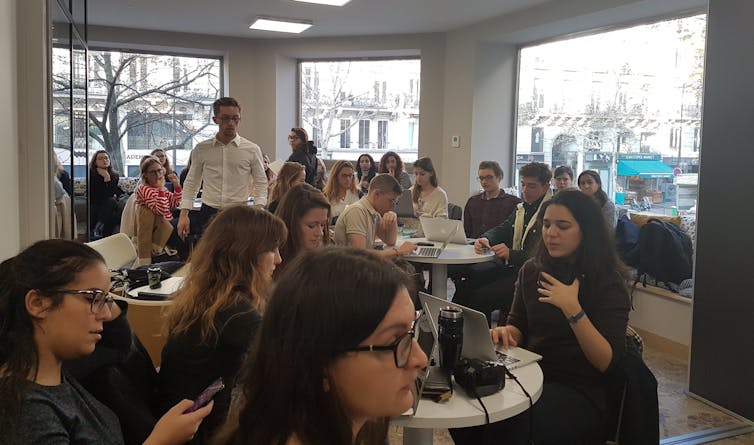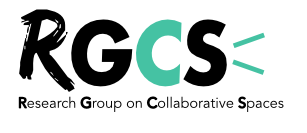
En octobre 2018, j’ai eu l’opportunité d’initier à Paris-Dauphine un cours de master sur les transformations du travail à l’ère du digital. Il s’agissait de comprendre les liens entre évolutions du travail et nouvelles formes d’organisation et de management. Dans l’esprit, cet enseignement était aussi l’occasion d’essayer de lier des pratiques souvent séparées (pédagogie et recherche). Les débats, le faire et l’analyse s’entremêlaient avec des séances hors les murs. Une partie des heures devait ainsi se passer sur le terrain, dans ces lieux où se construit l’objet même du cours : espaces de coworking, labs d’entreprise, makerspaces, hackerspaces, associations militantes, coopératives…
Au-delà de ce décloisonnement spatial, l’idée était aussi que les étudiants se voient comme des participants au
